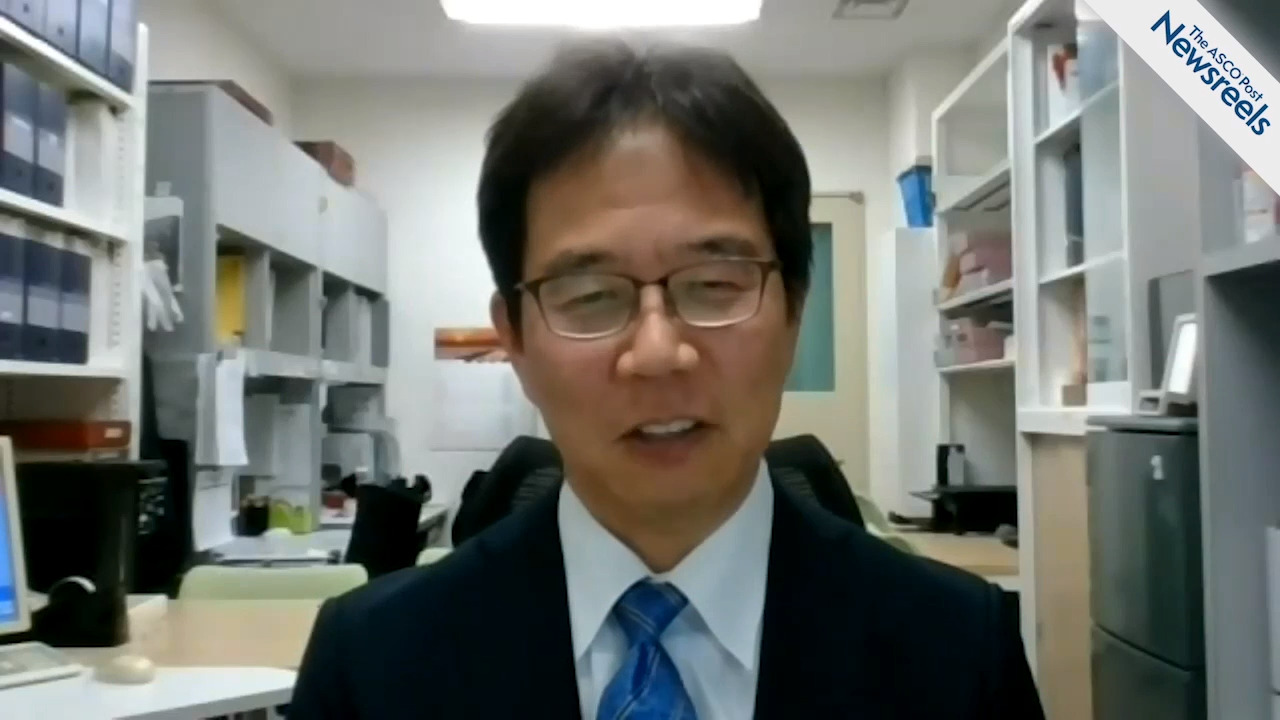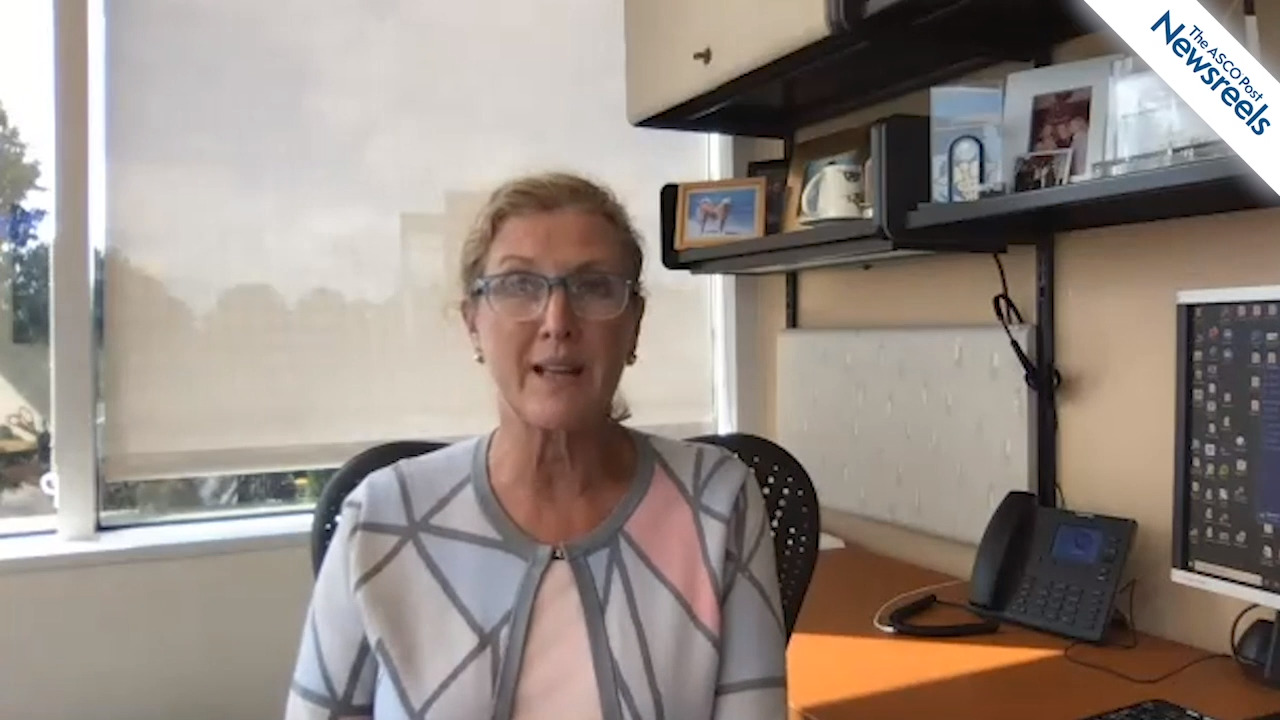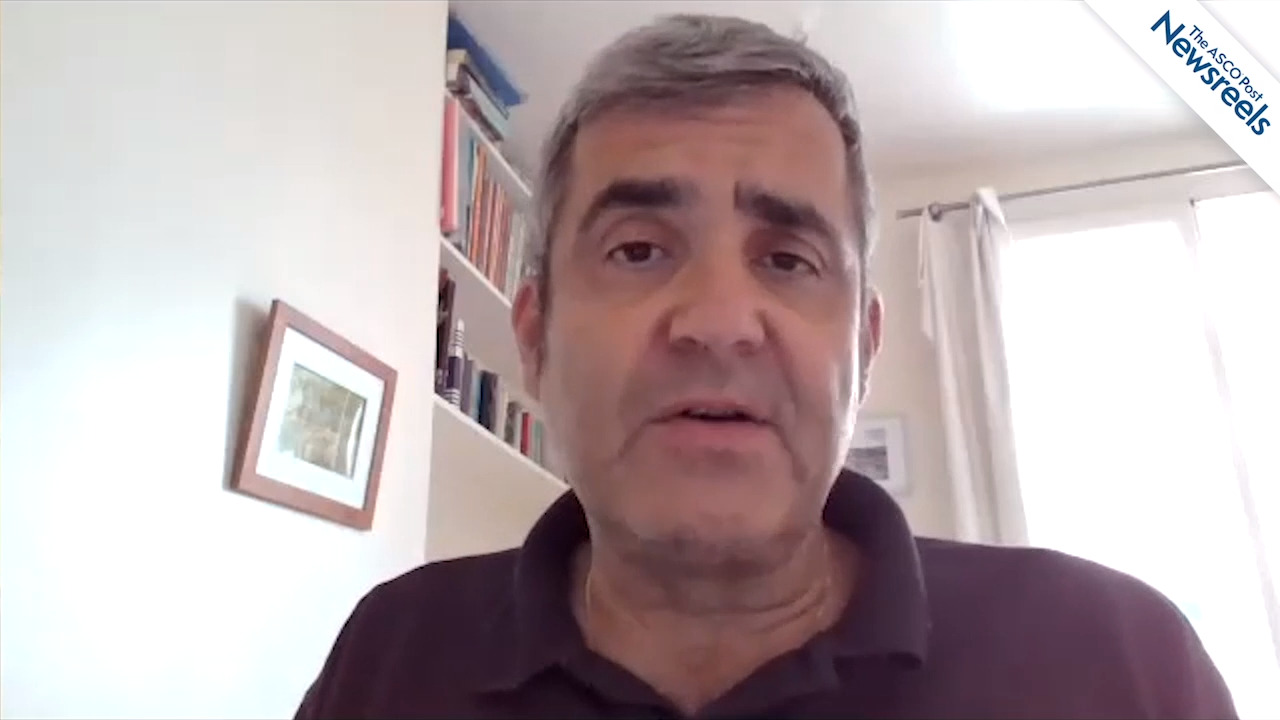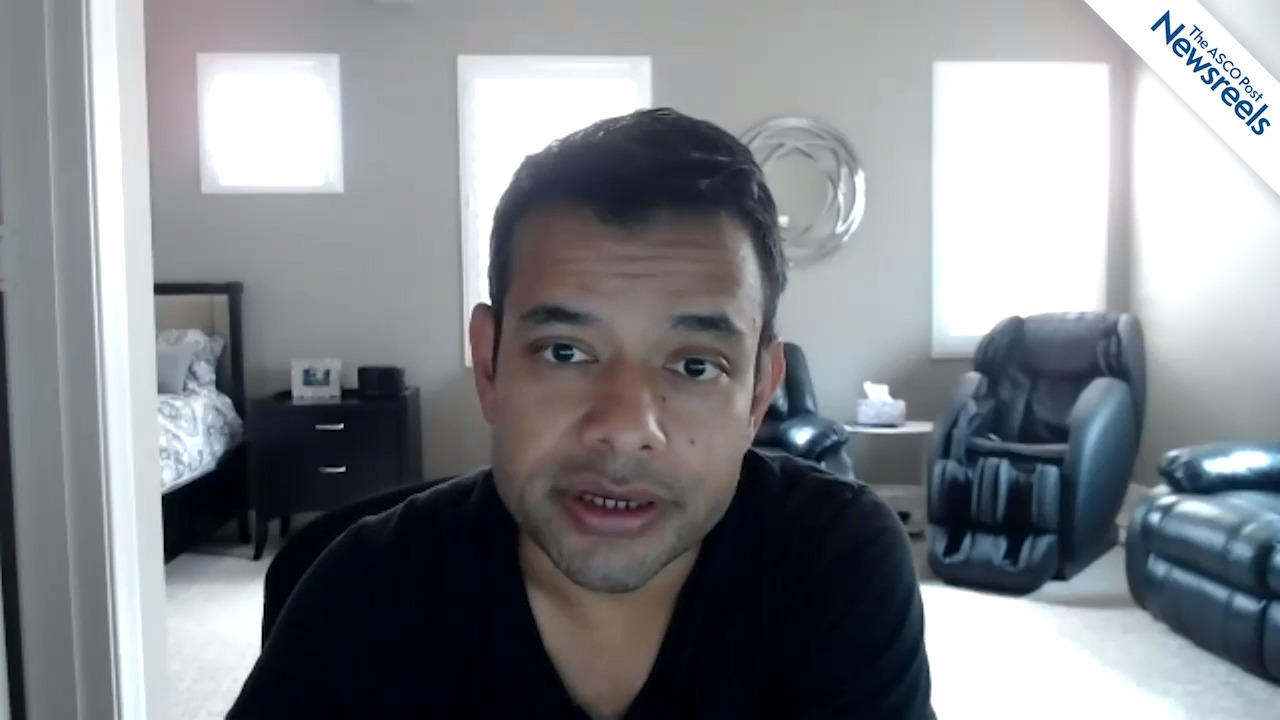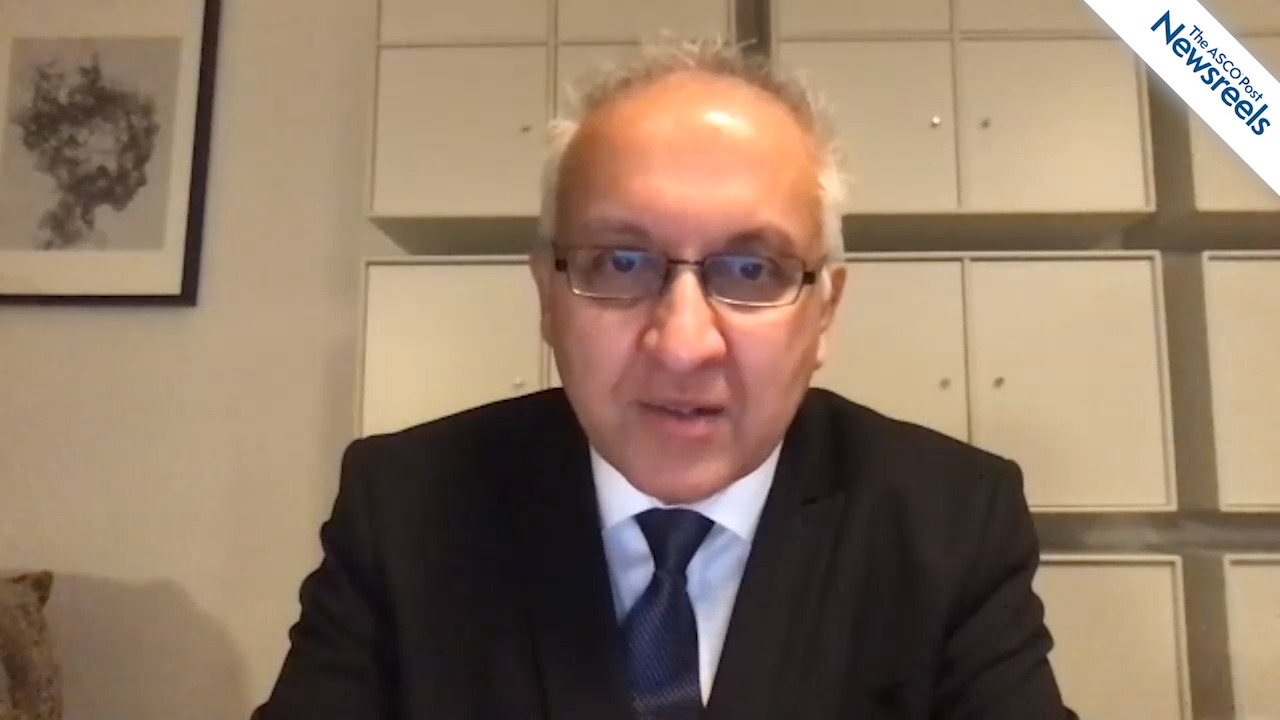Paolo A. Ascierto, MD, on Melanoma: Sequencing Targeted Treatments and Immunotherapy
ESMO Virtual Congress 2020
Paolo A. Ascierto, MD, of the Istituto Nazionale Tumori, discusses phase II results on progression-free survival for patients with advanced melanoma in the SECOMBIT study, whose aim is to evaluate the different sequencing of a BRAF inhibitor (encorafenib) plus a MEK inhibitor (binimetinib) with ipilimumab plus nivolumab (Abstract LBA45).
The ASCO Post Staff
Masahiro Tsuboi, MD, of Japan’s National Cancer Center Hospital East, discusses the phase III results from the ADAURA study, which showed a reduced risk of local and distant recurrence in patients with resected EGFR-mutated non–small cell lung cancer, reinforcing adjuvant osimertinib as an effective treatment (Abstract LBA1).
The ASCO Post Staff
Lisa A. Carey, MD, of the University of North Carolina, discusses phase III results from two IMpassion trials, 130 and 131, which explored, respectively, atezolizumab plus nab-paclitaxel vs placebo plus nab-paclitaxel in previously untreated locally advanced or metastatic triple-negative breast cancer and first-line paclitaxel with or without atezolizumab for unresectable disease (Abstracts LBA15 and LBA16).
The ASCO Post Staff
Thierry Andre, MD, of Hôpital Saint-Antoine, discusses phase III KEYNOTE-177 findings on the reduced risk of disease progression or death in patients receiving pembrolizumab monotherapy as a first-line treatment of microsatellite instability–high and/or mismatch repair–deficient metastatic colorectal cancer (Abstract 396O).
The ASCO Post Staff
Sumanta K. Pal, MD, of the City of Hope National Medical Center, discusses results from the COSMIC-021 study, which tested two different doses of cabozantinib, each with a standard dose of atezolizumab, administered to patients with metastatic advanced clear cell renal cell carcinoma. Dr. Pal reports on response rates and progression-free survival, as well as biologic correlates that may have influenced response (Abstract 702O).
The ASCO Post Staff
Mansoor Raza Mirza, MD, of Copenhagen University Hospital, discusses phase II study results that showed the combination of palbociclib and letrozole, compared with placebo plus letrozole, improved progression-free survival in patients with estrogen receptor–positive advanced or recurrent endometrial cancer (Abstract LBA28).
